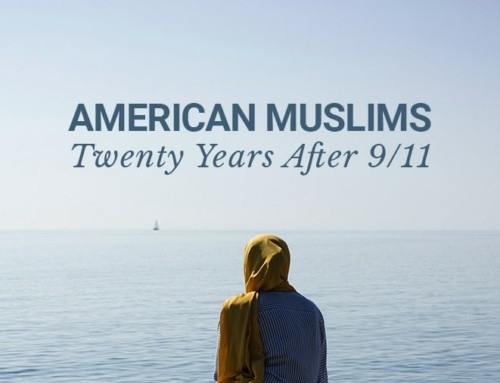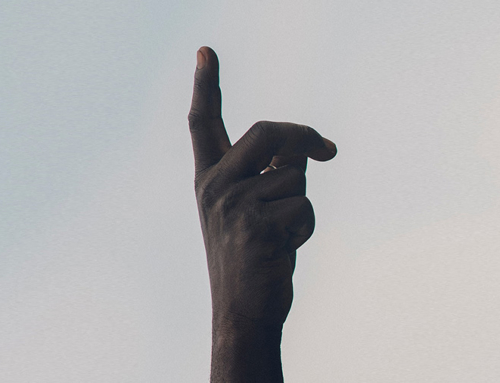Muslims Speak Out About Islam in Wake of 9/11
The backlash on Islam and Muslims in the immediate aftermath of 9/11 compelled many Muslims to speak out about Islam. Since then, this trend has sustained itself as Muslims continue to engage themselves with local and national organizations, etching out a niche for themselves in the American narrative.
Here are some ways in which Muslims have been actively working to build bridges of understanding.
Interfaith
Interfaith activity peaked after 9/11. Mosques began to touch base with synagogues and churches, finding commonality among their differences. Imams, Rabbis, and Priests regularly interacted with one another and attended sessions at the different houses of worship; Bahais, Sikhs and Hindus were also integrated in interfaith activities. This engagement enabled strong alliances so that when people arbitrarily point fingers at Muslims, their interfaith allies stand up for them.
On this anniversary of 9/11, many interfaith organizations are asking people to be sensitive and loving to their Muslim neighbors. In a similar vein, mosques and Muslim groups around the nation will be commemorating 9/11 with a range of events, such as interfaith gatherings, unity walks, blood drives, meal distributions, among others.
Identity
An entire generation grew up in the wake of 9/11. Muslims utilized different ways of expressing their identity, from celebrating hijab to sharing Ramadan.
In 2010, Sadaf Syed traveled across the United States, with two children in tow, in order to photograph Muslim American women in hijab. A photojournalist, Syed set out to show that Muslim women are not oppressed or suppressed by their religion; instead, they are simply encouraged to dress modestly. Her project culminated in the book, “iCover: A Day in the Life of a Muslim-American COVERed Girl,” which features about 70 women. She captures moments in the day-to-day lives of covered Muslim women, encouraging Americans to go beyond their hijab. Covering a wide array of professionals and hobbyists, the book showcases a teacher, a biker, a dentist, a surfer, a mother, an actress, and many more. Syed was recognized by President Obama and hosted at the White House for a dinner in Ramadhan 2010.
In 2009, Bassam Tariq and Aman Ali went to 30 mosques in 30 days in New York during the fasting month of Ramadan. In 2010, they decided to go to 30 mosques in 30 states in 30 days on a road trip across America. “Our journey explored what it means to be Muslim in America today and served as a powerful counter-narrative to the media’s image of a monolithic Islam,” writes Bassam Tariq. Indeed, they met Muslims from all walks of life and documented authentic and compelling stories about Muslims in America in their blog 30Mosques.com. In 2010, they visited mosques in the rest of the 20 states, including Alaska and Hawaii, and returned to some of the ones from last year. By now, this has become an annual traveling project for the duo.
Information
Muslims realized that the average person was quite ignorant of the true teachings of Islam and relied heavily on mainstream media for their perception of Islam and Muslims. At the same time, there were others who wanted to learn about Islam and Muslims. Therefore, an active effort to share information was undertaken via press releases, guest columns, and blogs.
877-Why-Islam, which had already initiated its mission of dispelling stereotypes and disseminating accurate information about Islam before 9/11, stepped up its activity to fulfill the increasing demand for Qurans and brochures. They also expanded their informational booths so they could reach more and more people. Billboards went up in more cities, and radio and TV stations began carrying infomercials about Islam. 877-Why-Islam eagerly engaged in ground-roots causes such as having a Food Bank, distributing free school supplies to needy people, and sharing meat with the poor on the occasion of Eid (Muslim holiday). The 877-Why-Islam website over the years became more comprehensive as well and its hotline continued to draw hundreds of calls per month.
877-Why-Islam: Countering Islamophobia and Fostering Understanding
Today, 877-Why-Islam continues to play a major role in countering Islamophobia and fostering understanding within the larger American society. 877-Why-Islam’s voice is extremely important because it seeks to educate people and to create a healthy dialogue about Islam. In an age where generalizations gloss over complex concepts and oversimplifications ignore multi-faceted realities, such emphasis on providing accurate information about Islam is critical.
Indeed, the most effective ways in which we can combat terrorism on individual and collective levels are by building bridges of understanding and celebrating diversity – no matter what our races, ethnicities, or religions may be. Let us transform the current divisive discourse into one of engagement and shared respect, and pray for a better world for our generation and the generations to come.
Got Questions?
We have Answers. Get in touch now.








